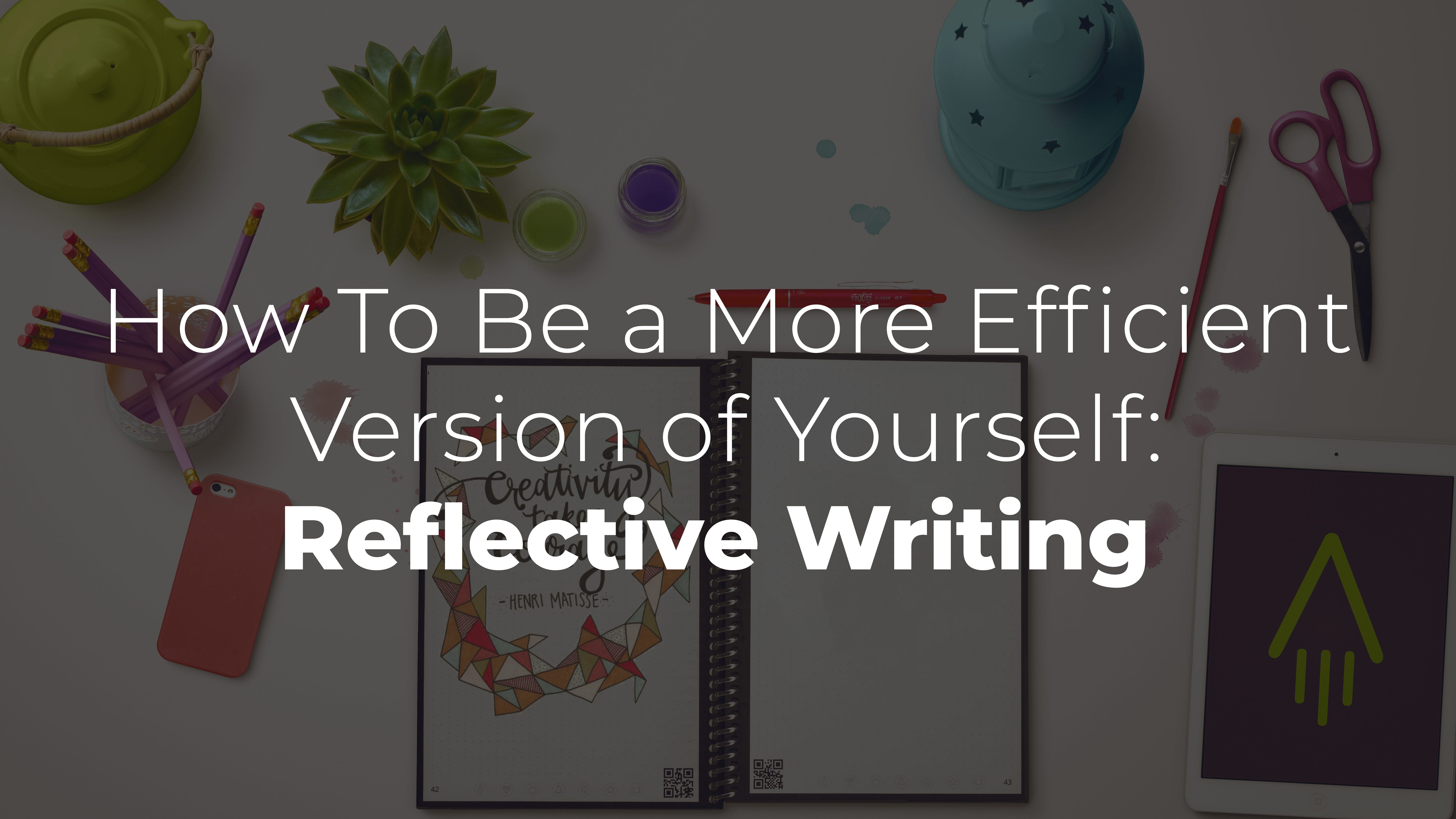Improve your daily efficiency in just 5 minutes.
Finding and maintaining harmony between your work and your life is a balancing act that many professionals have difficulty with. The constant struggle to stay in touch with family and friends while also pursuing a career — or simply doing your job — can be extremely stressful, causing burn out or instilling feelings of negativity that seem to blossom over time.

This is particularly true if you are not scheduling regular mental check-ins to see how any stresses are impacting the quality of your life. Fortunately, we’ve made a list of some reflective writing activities that can help you work through any setbacks to allow you to focus on the activities that are adding positive value to your life.
How To Get Started with Reflective Writing
Creative or reflective writing isn’t just a brain dump of everything that’s on your mind — although it can function that way, especially when you’re getting started with this new practice. Instead, reflective writing is meant to help you stay in the moment and capture ideas and feelings in a way that allows your brain to process them more effectively. Try to practice reflective writing before or after work to start to build a mental transition between work and home.
Here’s some tips on how to effectively get started with reflecting writing:
- Find a quiet space and grab some writing implements such as a (reusable) notepad and pen to capture your thoughts.
- Set a timer for a short period of time, perhaps 5 minutes.
- Don’t stop to think about what you should be writing, just write!
When you start this exercise, it might feel forced and you might really struggle to fill your page. If you can’t think of words, simply doodle or describe your physical surroundings until your mind relaxes enough to allow free writing. Continue this effort every day for several weeks and then review how you feel. If it helps to hold yourself accountable, try habit tracking. You might be surprised to learn that reflective writing gets some of the unnecessary frustrations out of your mind, allowing you to make a clean break between your work and home time. Not only can this reduce stress, but it also makes you more efficient overall because you are fully present in your surroundings instead of being distracted by stressors that you have no control over.

3 Benefits of Reflective Writing
Now you can see how reflective writing can be incorporated into your daily schedule to help create a sense of calm in your life. Here are some additional long-term benefits that you can expect to see from practicing reflecting writing. Remember, very few positive changes happen overnight, so be sure to give yourself time for a habit to be formed before giving up on this ongoing practice. You can use your notebook as a habit tracker to keep yourself accountable for your new habit. As time progresses, you will see the benefits that will boost your personal awareness and your efficiency.
1. Declutter Your Brain
Once you become comfortable with the practice of daily writing, all of those minor (and major!) frustrations will flow onto the paper — and out of your mind. This process of decluttering your brain helps you by lifting the weight from your mind and freeing you up to simply be present with family and friends. Looking for other great ways to clear your mind? Try meditation.
2. Work Out Frustrations
You know all of those things you wished you could say — but didn’t? Let them flow out onto your paper . . . which you will then never share with another soul. Even though your keeping these words to yourself, seeing these frustrations in writing can help bring perspective and perhaps see the other side of arguments. Understanding how others approach a topic allows you to be a more effective and patient communicator in the future.
3. Accomplish Those Goals
Are there big, scary goals that you want to accomplish? There’s no time like the present to start free-flowing your ideas onto paper. You might be surprised to find that perfect golden nugget when you going back later and read these ideas. Your mind has a way of relating tidbits of information when ideas are flowing freely onto paper. If nothing else, you’re getting the ideas out of your head and somewhere that they can be reviewed — and acted upon!



